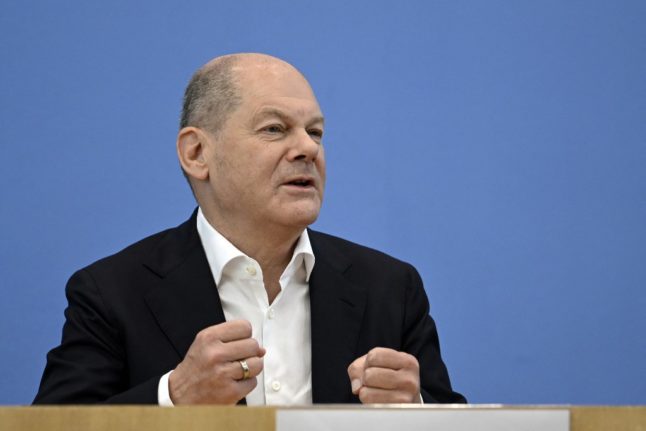Russia’s war in Ukraine was one that would likely “drag on for a long time”, Scholz said at a press conference.
“That is why it is important to formulate a long-term perspective that we are prepared to support Ukraine for as long as it is necessary and to the extent it is necessary,” said Scholz, speaking alongside his Dutch counterpart Mark Rutte.
Putin was “hoping the readiness in our countries to do what is necessary and to formulate the necessary support diminishes”, Scholz said. “It would be a very important message, if we told him: don’t count on it.”
Germany along with its partners in NATO and the European Union have provided Ukraine with billions in aid to sustain its war effort. But the stream of support has looked at risk of drying up as political divisions on both sides of the Atlantic threaten to block new supplies.
In the EU, Hungary’s prime minister has threatened to block fresh billions in aid, when the bloc’s 27 leaders meet in Brussels on Thursday. At the summit, the EU is eyeing agreements to give Ukraine 50 billion euros ($54 billion) more in financial aid, topping up a weapons fund for Kyiv by five billion euros and opening talks to join the bloc next year.
Meanwhile in the United States, Republican senators last week blocked $106 billion in emergency aid primarily for Ukraine and Israel in a dispute over immigration reforms.
Outgoing Prime Minister Rutte expressed confidence that the Netherlands would continue to back Ukraine, after the far-right topped the polls in national elections last month. “I am convinced that in the Netherlands we have a large majority… that is pro-Ukraine, which will ensure that we continue with support for Ukraine,” Rutte said.
READ ALSO: Scholz says Ukraine support ‘of existential importance’ – despite debt woes



 Please whitelist us to continue reading.
Please whitelist us to continue reading.
Member comments